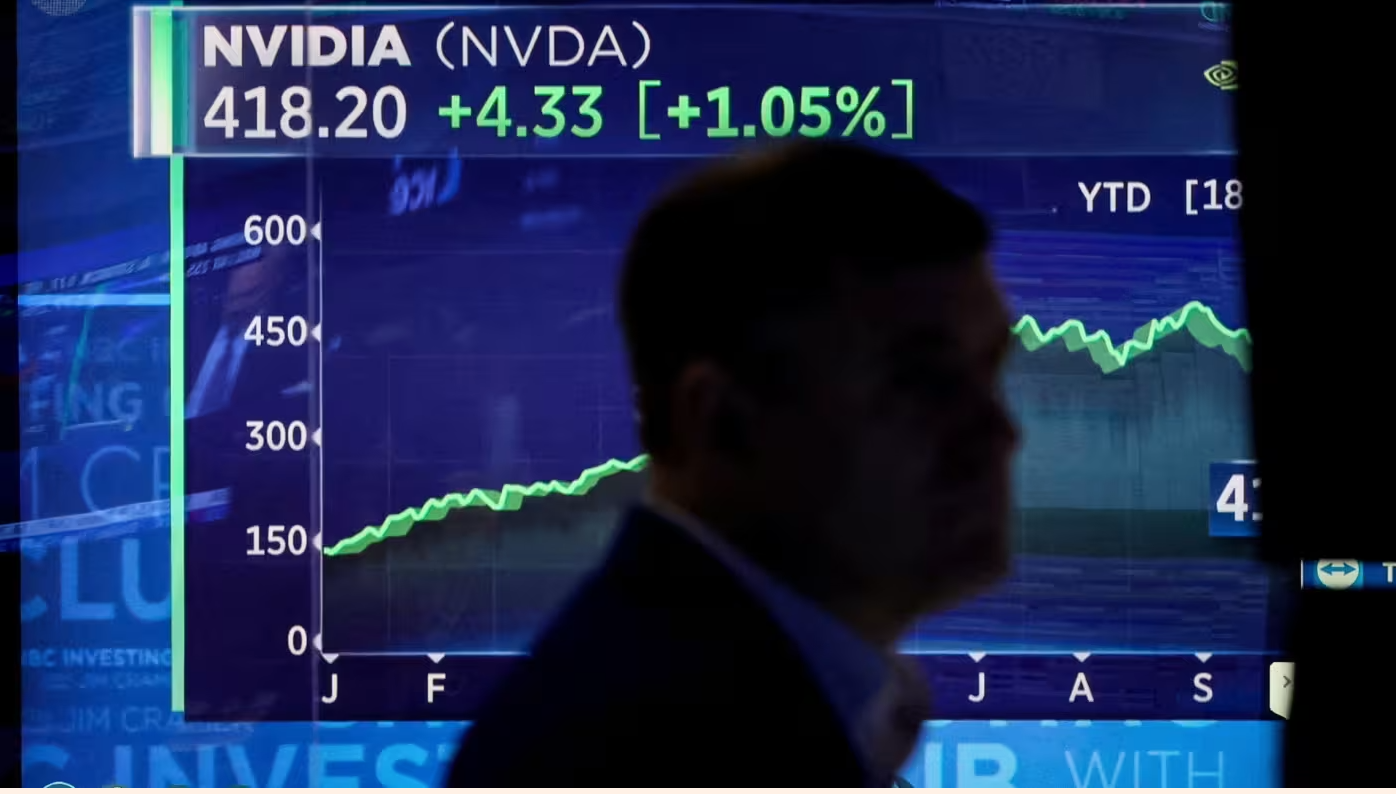On Wednesday, Nvidia will report its quarterly earnings. Mind you, this may not make much of a difference to its share price. Nvidia’s stock is headed to the moon and, in a market awash with liquidity, not much will stop it for now.
The AI boom is reaching the sort of lofty heights that characterised history’s great bubbles, from the Dutch tulip mania to the dotcom bust at the turn of the millennium. Investors have now determined that Nvidia alone is worth more than the entire annual output of Spain. Add in the tech companies expected to profit most from the AI revolution — Nvidia along with Amazon, Apple, Alphabet, Meta, Tesla, and Microsoft — and the so-called Magnificent Seven are together valued at more than the stock markets of every other country on the planet. The American stock market’s spectacular performance over the last year, up more than a fifth, has been driven almost entirely by these seven companies.
We’ve been here before, many times. New technologies often produce bubbles — railways in the 19th century, automobiles and radios in the 1920s, the internet in the 1990s and now the AI boom, which was triggered by Open AI’s launch of ChatGPT late in 2022. Driving any bubble is the same conviction that the new technology will revolutionise the economy, combined with the fact that nobody can be sure just how it will do that. So narratives of transformation become self-sustaining, as the stock’s rise draws in ever more investors eager to join the ride, creating a self-propelling upward cycle.
In time, all bubbles burst. So will this one, even if most analysts seem to think it can run some way before the crash happens. The expectations embedded in the price for Nvidia alone would, if fulfilled, be pretty much without precedent. One analyst has calculated that to justify its current valuation, Nvidia would need to grow its sales tenfold while maintaining a profit margin of over 50%. Possible? Yes. Likely? One might want to instead consider a sharehold on the Brooklyn Bridge.
But there are two additional features to the AI bubble that are particularly concerning. One is the sheer volume of liquidity in the markets. Despite sharply raising interest rates, the Federal Reserve has been finding other ways to pump money back into the financial system, such as the liquidity measures it put in place during last year’s regional bank run. This sea of cash is actively chasing returns and inflating asset values, which in turn is complicating the Fed’s inflation battle: as share prices rise, more people cash out and take early retirement, reducing the labour supply and thus driving up wages.
But an even bigger concern may be the rise of passive investing, which for the first time accounts for half the market. Unlike active funds, which hire researchers to analyse company statements and inform investment decisions, passive funds merely assign the money to the market using a pre-set formula. On one hand, because they have lower costs, they can make investors more money. But on the other, they tend to follow the crowd, assuming as they do that the crowd has done its research. The resulting tendency is pro-cyclical: as a stock like Nvidia rises, more money rushes in and drives it higher.
Of course, this can work either way. When the AI bubble bursts, passive funds may automatically rush for the exits, worsening the fall. Just how the Fed might corral this crowd when it begins to stampede remains to be seen.











Join the discussion
Join like minded readers that support our journalism by becoming a paid subscriber
To join the discussion in the comments, become a paid subscriber.
Join like minded readers that support our journalism, read unlimited articles and enjoy other subscriber-only benefits.
Subscribe